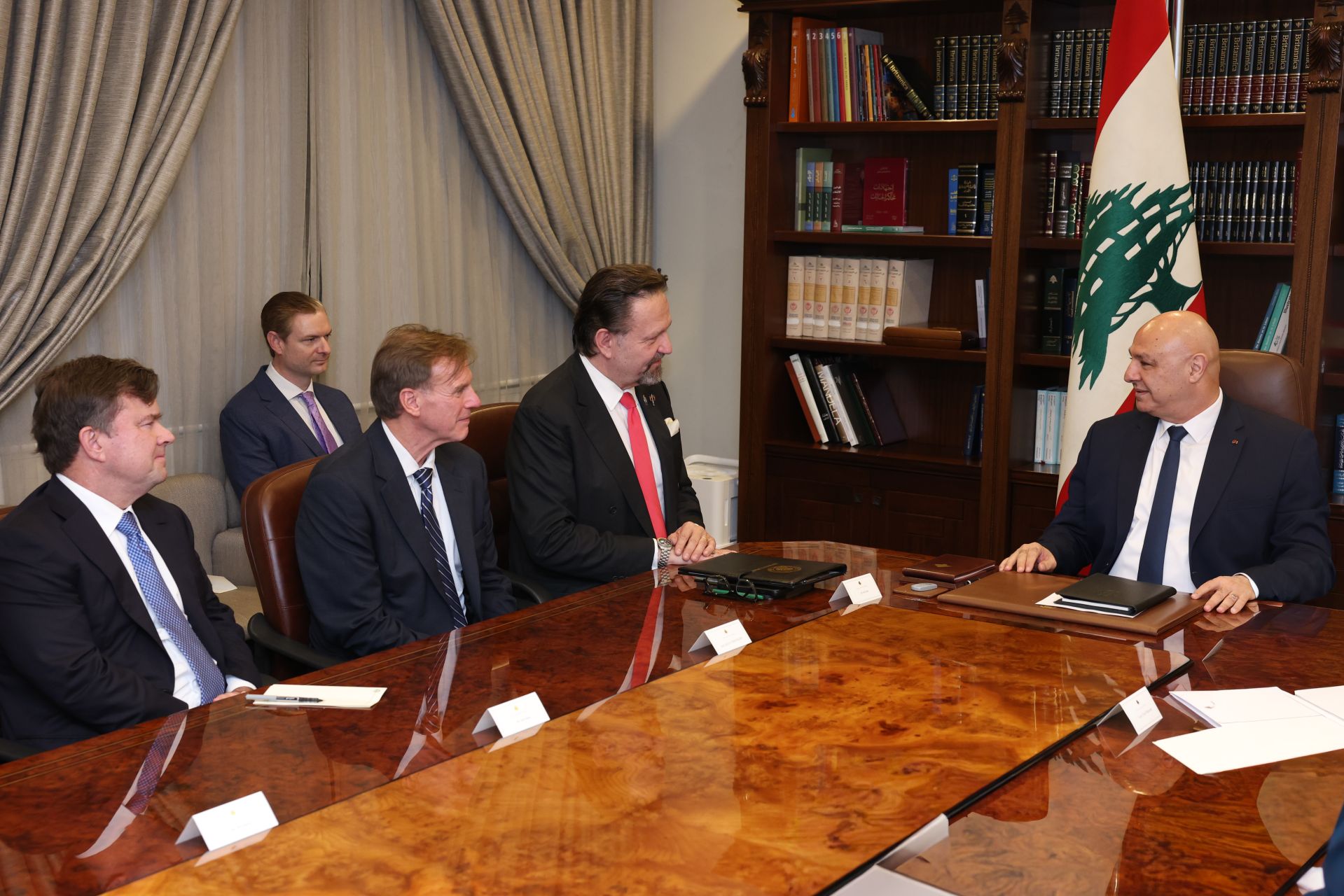
President Joseph Aoun met on Sunday evening with a delegation from the U.S. Department of the Treasury at the Baabda Palace.
The delegation was led by Sebastian Gorka, Deputy Assistant to the President and Senior Director for Counterterrorism at the National Security Council (NSC), and included John Hurley, Under Secretary for Terrorism and Financial Intelligence, as well as Rudolph Atallah, a counterterrorism specialist at the NSC.
Talks focused on Hezbollah’s financial networks, which Washington is actively seeking to dismantle.
In a statement released after the meeting, the President said he had informed the delegation of the “rigorous implementation of existing measures aimed at preventing the laundering, transfer, or use of funds for terrorist financing, and that all financial crimes, regardless of their nature, are strictly sanctioned.”
President Aoun recalled that these efforts are part of several recent reforms, “notably the adoption by Parliament of the amended banking secrecy law, the restructuring of the banking sector, and the circulars issued by the Banque du Liban in this regard.”
Alongside these economic and financial measures, the Head of State emphasized that the army and security services are actively pursuing terrorist cells, bringing their members before the competent judiciary, and thwarting any attempts to destabilize the entire Lebanese territory.
The discussions also addressed ongoing contacts with the International Monetary Fund (IMF) and the ways to reach an agreement aimed at supporting Lebanon in overcoming its economic crisis, as well as the steps required to revive the banking sector to ensure the flow of funds in accordance with international standards.
Addressing the situation in southern Lebanon, President Aoun stressed the “need to pressure Israel to cease its repeated aggressions against Lebanon” and to comply with UN Resolution 1701 and last year’s agreement, which “would allow the full deployment of the Lebanese army to the southern border and the implementation of the state monopoly on arms plan.”
He reaffirmed that the option of dialogue, repeatedly mentioned, stems from the observation that war has produced no tangible results. However, he added, “any negotiation requires a favorable environment, foremost among which is the cessation of hostilities and stability in the South,” a path he said is supported by the United States and several other countries.
For its part, the American delegation expressed, according to the presidential statement, Washington’s willingness to help Lebanon strengthen security and stability in the South, support the Lebanese army in its role as guarantor of state authority across the country, and eliminate armed manifestations to allow legitimate forces to fully carry out their duties.
The U.S. delegation had arrived earlier in the evening at Beirut’s Rafic Hariri International Airport.
Earlier in the day, John Hurley told Reuters that the United States seeks to seize a “favorable moment” in Lebanon to cut off Iranian funding to Hezbollah and push the group to disarm.
“There is a moment now in Lebanon. If we can get Hezbollah to disarm, the Lebanese people could get their country back,” he added.


Comments